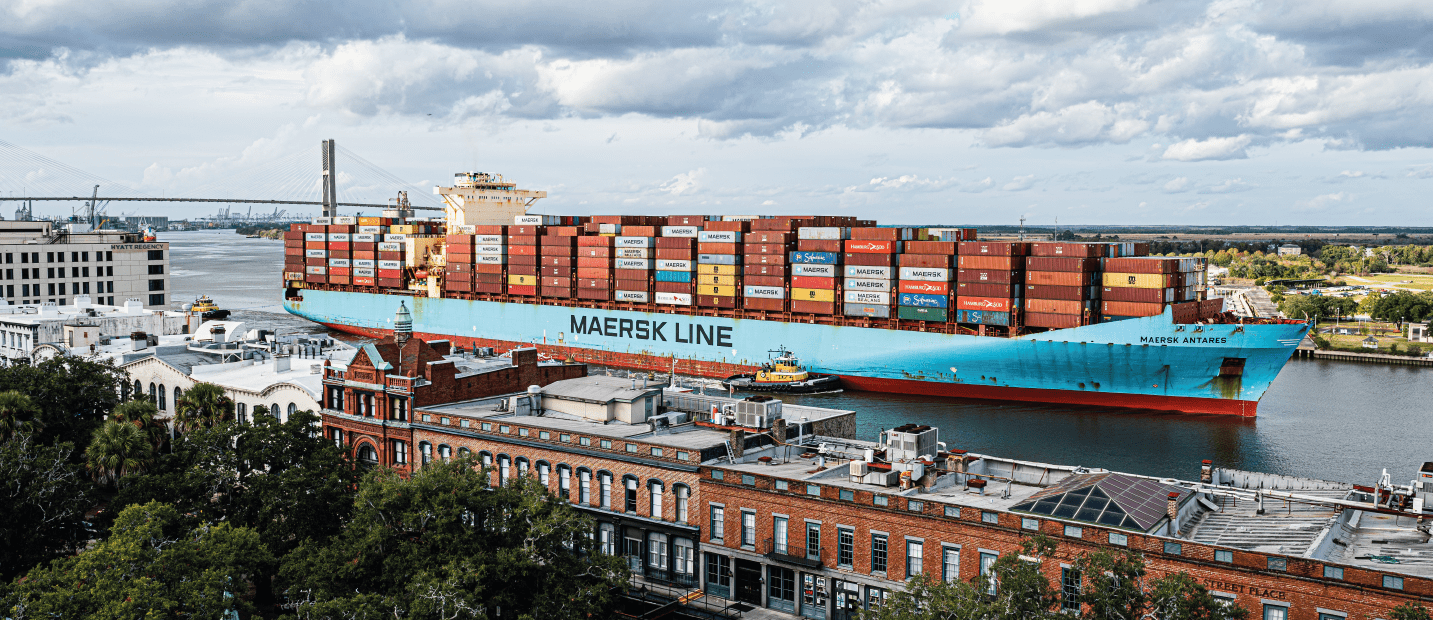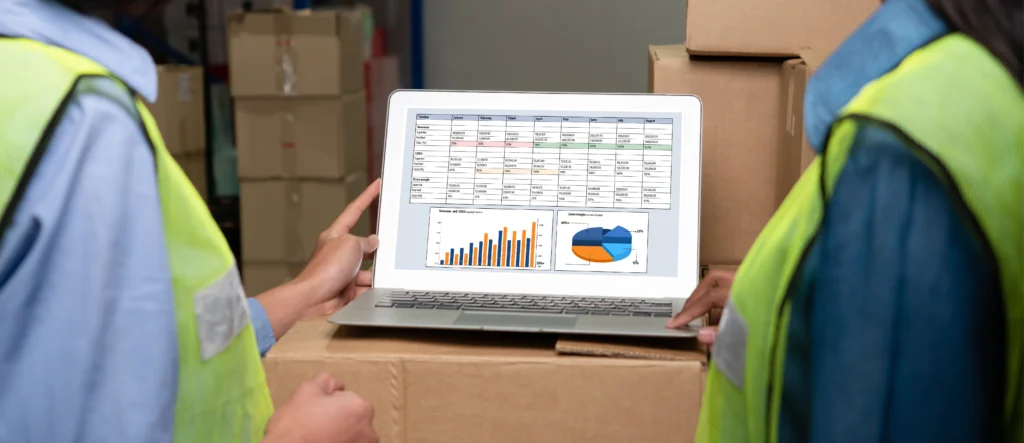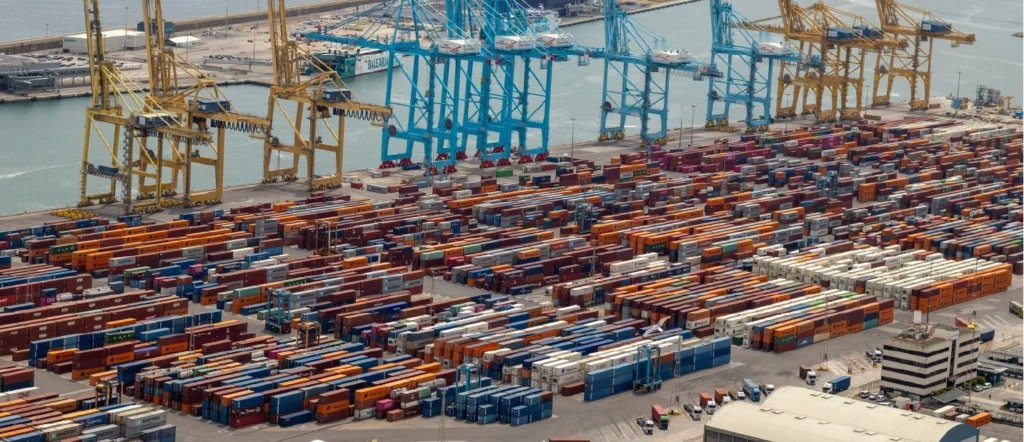Moving goods from one place to another can be a complicated and obstacle-filled task. Among the most common problems are regulatory compliance, coordinating shipments and handling multiple documents. If this sounds overwhelming, don't worry, because there is a solution: a freight forwarder. These professionals are like the superheroes of freight forwarding, capable of solving any logistical problem with skill and dexterity. With their extensive experience in the transportation industry, a freight forwarder can handle the entire logistics, from picking and packing the goods to delivering them to the final destination, making it hassle and stress-free for you and easy for your business to operate.
What does a freight forwarder do?
A forwarder or freight forwarder is a logistics intermediary who is responsible for coordinating and managing the transport of goods internationally. This type of company is responsible for organizing the movement of cargo from origin to final destination, and takes care of all the formalities and procedures required for transport, such as customs documentation and insurance.
How can I benefit from hiring a freight forwarder?
By contracting the services of a forwarder, companies can forget about the details of transportation, since the forwarder is in charge of cargo management, customs documentation, transport insurance and the coordination of the different means of transport to take the goods to their final destination.
In addition, forwarders have extensive knowledge of customs rules and regulations in different countries, which allows them to avoid potential problems and delays in cargo clearance. They can also offer advice on the best and most efficient transportation options, routes and modes of transport, which can help companies reduce transportation costs and improve efficiency in the supply chain.
Having a forwarder can greatly facilitate the import process, saving time and money for the companies that hire them and allowing them to focus on their core business.

A little history about forwarders
The history of forwarders dates back to the 19th century, when steamships began transporting goods over long distances. At that time, forwarders were mainly shipping agents who were responsible for arranging shipments of goods from ports of origin to ports of destination. These agents were very important to traders, as they allowed them to ship their goods anywhere in the world safely and efficiently.
As the transportation industry developed, forwarders also evolved and adapted to new technologies and modes of transport. In the 1950s, the introduction of the container revolutionized the way goods were transported and forwarders became specialists in container management. In the 1960s and 1970s, forwarders began to offer land and air transport services, enabling them to offer complete logistics solutions to their customers.
Today, forwarders are very important companies in the global supply chain, offering comprehensive logistics services, from supply chain planning to shipment management and final delivery of goods. In short, forwarders have evolved over time and have adapted to the needs of their customers, becoming key players in the global supply chain.
You might be interested in: Learn I Tax Deposit
Main functions of a freight forwarder
- Transportation coordination: A forwarder is responsible for coordinating the entire process of transporting the goods from the place of origin to the final destination. This includes planning the transport routes, selecting the most suitable means of transport (e.g. ships, airplanes, trucks), hiring the carriers and supervising the actual transport. In addition, the forwarder is responsible for coordinating deliveries and collections of goods, ensuring that the entire process runs smoothly and efficiently.
- Documentary management: The process of importing and exporting goods involves a large amount of documentation, such as commercial invoices, customs papers, import permits, certificates of origin, insurance policies and customs documents, among others. A forwarder is in charge of managing all this documentation, making sure that all the information is correct to ensure that the cargo complies with the regulations and norms of both the country of origin and the country of destination.
- Logistics advice: The forwarder can provide logistics advice to companies on the best transport option, the most suitable mode of transport, the most efficient route and the optimization of transport costs. A forwarder's knowledge and experience in international logistics can help companies improve supply chain efficiency and reduce transportation costs.
Information Monitoring

- Experience and expertise: The first point you should consider is the forwarder's experience and expertise in the industry. You should make sure that the forwarder has extensive experience in the type of shipment you need, whether by land, sea or air, as well as in the management of customs procedures and in the regulation of imports and exports. In addition, you should make sure that the forwarder has a team of highly trained professionals who are up to date on the latest industry regulations and requirements.
- Services offered: You should review the services offered by the forwarder and make sure they suit your needs. Some forwarders offer freight forwarding, customs brokerage, warehousing and distribution services, while others specialize in a single service. It is important that you select a forwarder that offers the services you need and has the capacity to handle your shipments.
- Cost: Cost is an important factor to consider when selecting a forwarder. You should get quotes from several forwarders and compare their prices and services offered. Make sure that the prices are transparent and that there are no hidden charges. However, keep in mind that cost should not always be the determining factor in selecting a forwarder.
- Warranties and insurance: Make sure the forwarder offers warranties and insurance for your shipments. Warranties may include delivery times, regulatory compliance and proper handling of the goods. In addition, it is important that the forwarder has adequate insurance to cover any loss or damage to the goods during transportation.
- References and reputation: Finally, it is important that you check the forwarder's references and reputation. You can check online reviews and opinions, as well as ask for references from other clients who have used the forwarder's services in the past. A good reputation and positive references can be a sign that the forwarder is reliable and offers high quality services.
Worldwide figures on freight forwarders:
- According to a report by Armstrong & Associates, by 2020 global forwarder revenues will reach $198 billion.
- The global logistics and transportation services market is estimated to be worth $15.5 trillion by 2023, and forwarders will play a major role in this market.
- The main markets for forwarder services are North America, Asia-Pacific and Europe. In 2020, North America accounted for 38% of the global forwarder market, followed by Asia-Pacific with 34% and Europe with 25%.
- The world's largest forwarders by revenue are DHL Global Forwarding, Kuehne + Nagel, DB Schenker, Panalpina and Expeditors.
- Forwarders are also adopting innovative technologies, such as artificial intelligence, the internet of things and robotics, to improve the efficiency and effectiveness of their logistics services.
- Demand for forwarder services is expected to continue to grow as global trade continues to expand and companies seek more complex and customized logistics solutions.
You might be interested in: https://abclogistica1.wpengine.com/2023/02/21/como-crear-un-plan-financiero-para-maximizar-los-beneficios-de-tu-e-commerce/
Over the years, the freight forwarder has evolved and adapted to changes in the market and customer needs. Today, this customs broker offers a wide range of services including supply chain planning and coordination, transportation of goods by land, sea and air, and customs and documentation management.
Working with a forwarder allows companies to reduce costs and optimize their logistics processes, which translates into greater profitability and efficiency. They are a key piece in the supply chain of companies, offering advantages such as their specialized knowledge, their wide network of contacts, their ability to optimize logistics processes and reduce costs, and their ability to make a difference in the success of any company seeking to expand and grow in the global market.





